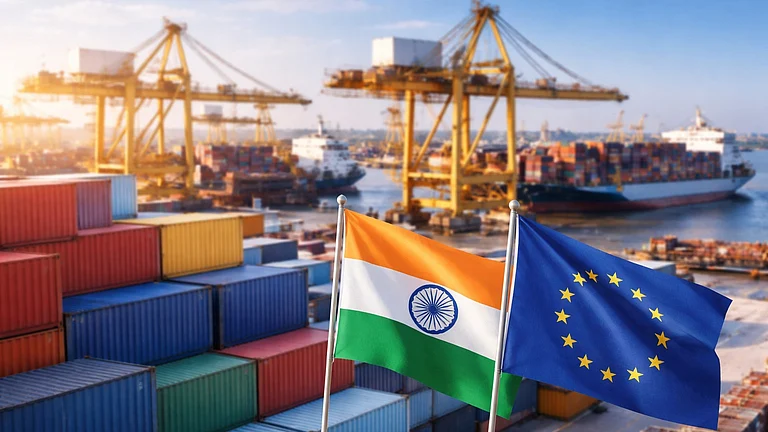Over $10bn worth of Indian goods reach Pakistan annually, even after trade between the nations was frozen since 2019, said New Delhi-based think tank Global Trade Research Initiative or GTRI. It said that many firms are turning to creative and controversial workarounds to make this trade happen through third countries.
"Trade finds a way—even when diplomacy doesn’t," says Ajay Srivastava, the founder of GTRI, in a social media post.
Following the Pulwama Terror Attack in February 2019, India hiked duties on Pakistani goods to 200% and removed its most favoured nation (MFN) status.
Explaining the system, GTRI added that third-country transhipment via global ports like Dubai, Singapore and Colombo is one of the very popular methods.
How & Why It Happens?
According to GTRI, Indian goods are sent to Dubai, Singapore and Colombo. Goods are stored in bonded warehouses in these transit hubs. While in storage—still duty-free—the documents and labels are changed.
"The products are re-exported to Pakistan under a new 'country of origin'—say, UAE instead of India," Srivastava adds.
Now this system does not only bypasses formal trade restrictions but also fetches better prices, even after re-export markups. Moreover, it maintains plausible deniability—no “official” trade, yet commerce continues.
Citing an example, GTRI said that $100,000 worth of Indian auto parts shipped to Dubai are relabeled and re-exported to Pakistan for $130,000, factoring in costs of logistics, paperwork and access to a restricted market.
"While not always illegal, this grey-zone strategy highlights how trade adapts faster than policy," Srivastava highlights.
"Supply chains bend, not break—especially when there's demand on the other side," he notes further. The GTRI also estimates that the worth of such goods reaching Pakistan is over $10bn.
India exported around $447.65mn goods between April and January to Pakistan in 2024-25. Maintaining a huge trade surplus with its neighbour, India's imports stood at jus $42mn.
India has shut the Integrated Check Post (ICP) at Attari with immediate effect, just a day after the terrorist attack in Pahalgam. This incident claimed lives of 26 tourists.

































